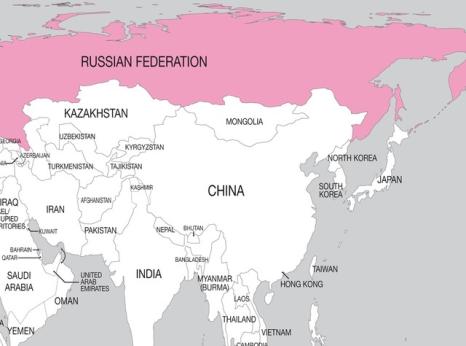Russian Federation: A Chechen Arrested In Moscow, Disappeared

In 2018, Idris Arsamikov (28) fled Russia following his arbitrary detention and torture and other ill-treatment by the Chechen police for his presumed homosexuality. He received a refugee status in the Netherlands. In March 2022, Idris Arsamikov returned to Russia to attend his father’s funeral. He had to give up his refugee status. Idris Arsamikov told Russian human rights defenders that upon returning to Chechnya, when he went to the police station in Shelkovskaya village to get a new foreign travel passport, the police issued him a Russian internal passport but confiscated his other documents. Because the authorities refused to issue Arsamikov a foreign travel passport, he had to stay in Chechnya.
On 15 February 2023, Idris Arsamikov left Chechnya and flew to Moscow. Prior to his flight, he told human rights defenders that since his return to Chechnya in March 2022, he had been arbitrarily detained and subjected to torture and other ill-treatment in the Shelkovksy District Police Department on at least three occasions. He had also received threats from his family members in connection with his perceived sexual orientation. On arrival in Moscow Domodedovo airport he was arrested by the transport police and handed over to men presumed to be Chechen law enforcement officials. On 17 February, when his lawyers came to Chechnya and demanded access to their client, the police did not allow them to enter the building of the Shelkovsky District Police Department and refused to disclose the whereabouts of their client. The lawyers submitted a complaint against the police actions to the Investigation Committee and to the Police department. Later the same day, two videos were published on Idris Arsamikov’s social media page on VKontakte allegedly showing him at his home with his mother and uncle, stating that he was fine, denouncing human rights defenders’ efforts to help him and making other statements that appeared to have been forcibly extracted.
Such videos recorded under duress are commonly used by the Chechen authorities to demonstrate that they have allegedly released someone they have in their custody, and “prove” that the relevant person is not ill-treated and is not interested in human rights defenders’ help. The authorities also frequently use fabricated criminal cases as a pretext to apprehend those they want in their custody. For instance, in January 2022, the Chechen police arbitrarily apprehended Zarema Musaeva, mother of human rights activists Abubakar and Ibraghim Yangulbaevs, and took her from Nizhnii Novgorod where she lived with her family, to Chechnya as a “witness” in a fraud case. There she was arbitrarily accused of and charged with use of violence against a police officer and fraud and remanded in custody. Her trial is ongoing.
In 2017, Russian independent newspaper Novaya Gazeta revealed a brutal crackdown on LGBTI people in Chechnya, when dozens of men were abducted, tortured and killed for their real or perceived sexual orientation. To date, not one person has been held accountable for these reported crimes, and persecution of LGBTI people continues.
Under the leadership of Kremlin-appointed Ramzan Kadyrov, Chechnya is the place where numerous human rights violations are being committed, with virtually total impunity for their perpetrators, and free speech has been brutally suppressed for years. Amnesty International and other human rights organizations have documented multiple instances when critics of the Chechen authorities, including human rights defenders, journalists and bloggers, have been prosecuted and imprisoned under fabricated criminal charges, or forcibly disappeared. Members of the general public who dare to criticise Ramzan Kadyrov, members of his administration, his relatives or associates, or complain about local problems such as the closure of a hospital, or even ask for help in ways which may reflect negatively on the Chechen authorities (for instance, ask for help to provide for a large family), are often being forced to make statements in front of a camera and publicly “apologise” for their actions, which is recorded and then broadcast on the local television or via social media. This practice has been widely used since at least 2015.